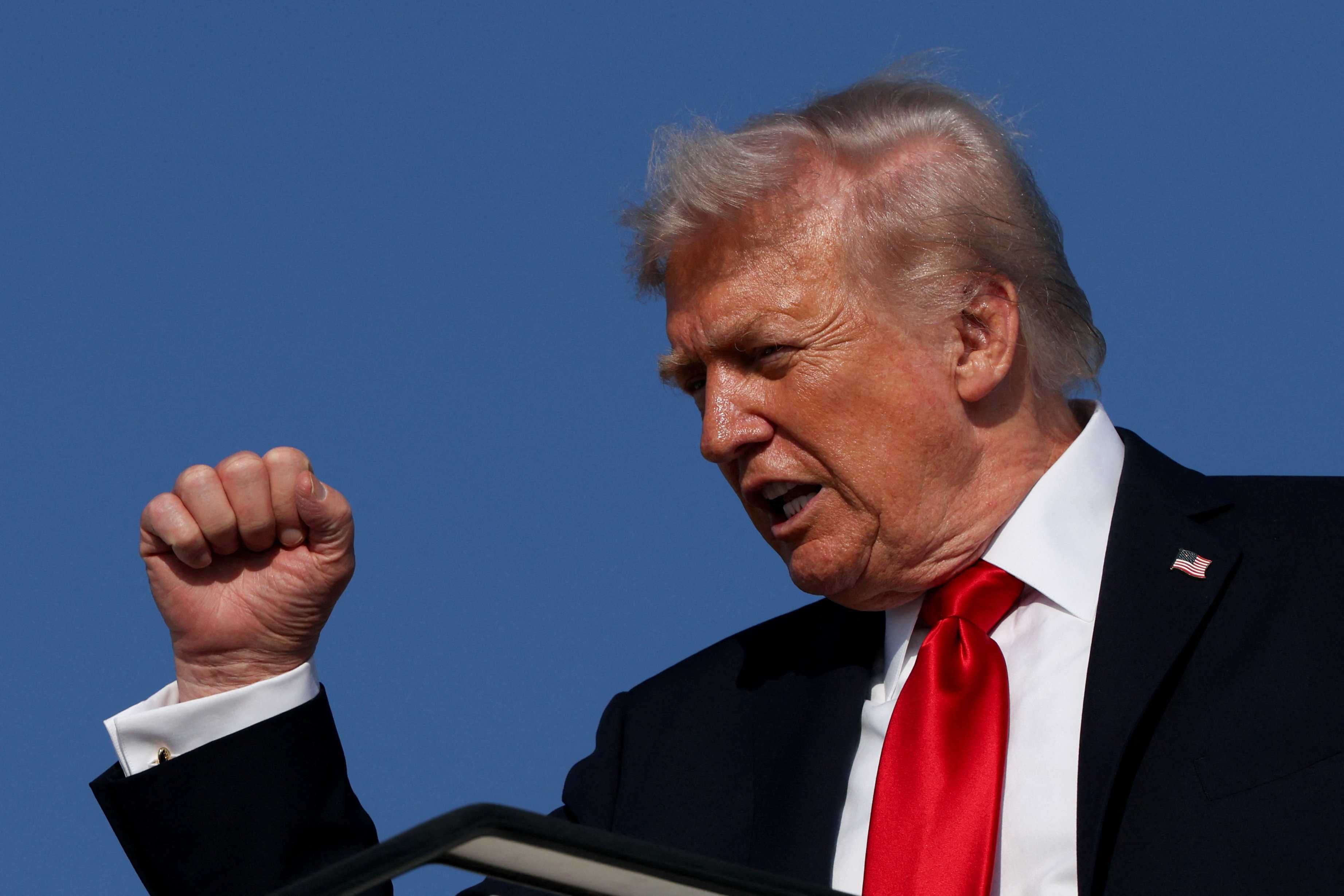Imagining what’s going on in the brain of President Donald Trump means looking into the minds of other blithely destructive autocrats, said columnist David Brooks. Their heads are filled with all the familiar psychological diagnoses: The loveless home; the insecurity-driven bullying; the psychopathic tendencies incapable of feeling others’ pain.
“But these studies never actually tell you how the authoritarians see themselves,” said Brooks, who cited a handful of familiar tendencies.
Authoritarians are performance artists, for example. Trump and Russian leader Vladimir Putin are not politicians but artists “who create alternate realities.”
“They tell stories, invent alternative facts, enact daily dramas, construct show trials and reinvent religions” and build a world where people who felt humiliated are now dominant, similar to the working-class American voters who felt humiliated by coastal elites for decades.
“In this alternative world, the snobs suffer. People support an authoritarian not because they like this or that policy but because they embrace the authoritarian’s artistic vision. Performance artists like Trump and Putin can be dishonest, offensive and outrageous, but there is one rule: They must never be boring,” said Brooks.
Autocrats also see themselves as “warriors,” and they see bureaucrats as “weenies” who study and read books.
“One of Trump’s political strengths … is that he is never seen reading a book,” said Brooks, citing Italian essayist Giuliano da Empoli. “The experts understand nothing, and he scorns them.” And Putin never mentions numbers. It’s more important to talk of life, death and glory.
An autocrat wolf also prizes centralizing power and generating fear among those around him.
“He plays endless dominance games. His acolytes rise and fall on his whim. He never admits error. He is unpredictable because nothing reduces people to submission as quickly as the threat of random punishment,” said Brooks. “Any technocrat can do the expected thing, but the wolf is the master of reckless action: Putin invades Ukraine. Trump declares a trade war on the world. The wolf has inherited systems with procedures and norms, but the wolf operates on manual overdrive. The human brain is programmed to focus on the unexpected, so you can never turn away.”
And an autocrat always needs a foil, said Brooks, to show he is the great protector. Putin built his power attacking Chechnyan Islamic terrorists, while Trump pursues immigrants and alleged drug smugglers from Venezuela. In that tack, the wolf also needs to “find the right scapegoats in order to manage and direct [peoples’] anger.”
Before becoming the biggest oligarch in Russia, Putin turned on the oligarch Mikhail Khodorkovsky because people resent oligarchs.
“Trump turned on Musk because who really likes a guy who just got a $1 trillion pay package? Scapegoats can range from elite universities to Democratic prosecutors to the corrupt generals in the Chinese or Saudi regimes, but they will be found,” said Brooks. “Large portions of the public want the high to be brought low.”
Autocrat wolves also adore “anything or anyone who will bring chaos: cyberattacks, extremists, crypto crashes, misinformation and deep fakes. … They’re all equally useful,” said Brooks. “Anybody who maximizes chaos increases public demand for wolfish protection.”
And autocrats always “talk about greatness.”
“They believe that the people want to experience camaraderie and strength. They offer those people a release from triviality, dreams of glory and honor. Mother Russia. Make America Great Again. A Chinese century. God’s glory.”
But self-value appears to be the chief component in any autocrat mind, said Brooks. “… They believe the world needs wolves to protect the good, decent people from the ruthless fancy people who are their actual enemies.”
This is how authoritarianism feeds on itself, Brooks warned. “The more wolves there are in the world, the more each nation needs to find its own.”
Read the New York Times report at this link.
